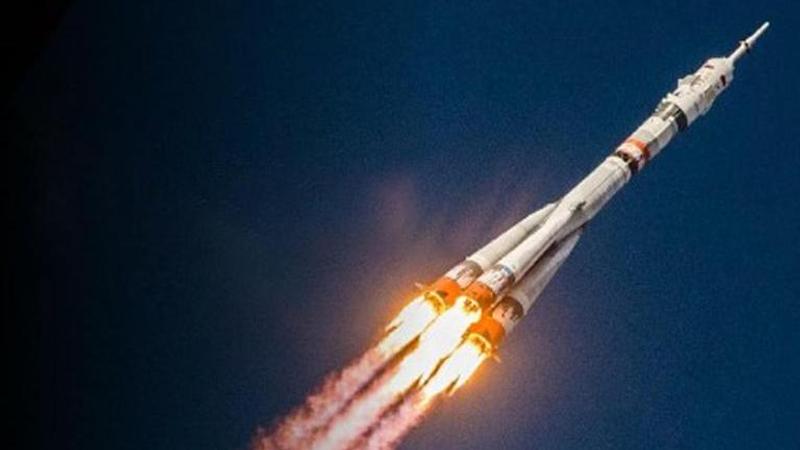Published 15:20 IST, February 24th 2023
Russia launches uncrewed Soyuz capsule for rescue mission of astronauts aboard ISS
Russia's space agency launched the new Soyuz MS-23 capsule atop the Soyuz 2.1a carrier rocket from the Baikonur Cosmodrome in Kazakhstan at 5:54 am IST.

Russia's space agency Roscosmos, on Friday, successfully launched the new Soyuz MS-23 capsule to bring back a trio of astronauts aboard the International Space Station (ISS). The spacecraft launched atop the Soyuz 2.1a carrier rocket from the Baikonur Cosmodrome in Kazakhstan at 5:54 am IST and it will dock at the space station at 6:31 am IST on Saturday.
This uncrewed capsule has been launched to replace the MS-22 spacecraft which suffered damage in December 2022 and as a result started leaking coolant into outer space.
(The Soyuz 2.1a carrier rocket lifts off for the ISS from the Baikonur Cosmodrome; Image: Roscosmos)
Rescue mission of astronauts begins
The leaky MS-22, which got damaged due to a micrometeoroid strike, carried NASA astronaut Frank Rubio with cosmonauts Sergey Prokopyev and Dmitri Petelin in September last year. All three were supposed to spend around six months aboard the ISS, however, their arrival has been delayed by several months despite sending the new MS-23. The trio will now return in September this year, after spending a whole year in space, Roscosmos confirmed.
According to Russian state media TASS, the replacement capsule blasted off with 429 kg of cargo which includes medical equipment, cleaning and atmosphere management tools, air revitalization and water supply equipment and other experiment apparatus. It is also carrying three times the usual amount of food to help astronauts get through the next few months and sustain all seven ISS residents. This is also because SpaceX will launch NASA's Crew-6 mission on February 27, which would add four more astronauts to the Expedition 69 team.
Notably, two of Russia's Soyuz capsules suffered damage and leaked coolant, the second being the MS-21. This cargo spacecraft was deorbited from the space station and its unburnt parts fell into the Pacific Ocean after its mission was over.
(The MS-21 spacecraft; Image: Roscosmos)
Updated 15:20 IST, February 24th 2023





